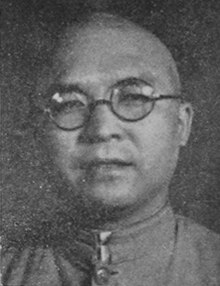Liu Lantao

Liu Lantao (
Early life
Liu was born in
Sino-Japanese War
At the start of the Second Sino-Japanese War, Liu went to the main communist base at the border of Shaanxi and Gansu Province. In 1938, he was sent to the border area of Shanxi, Hebei and Chahar Province to assist Peng Zhen and Nie Rongzhen. In 1944, he arrived in Yan'an to serve as an alternate member of the 7th Central Committee of the Chinese Communist Party.
Chinese Civil War
At the start of the second phase of the
Post-1949
After the formation of the
At the start of the Cultural Revolution, Liu was caught up in the case of the 61 Renegades alongside Bo Yibo, An Ziwen and others. As a result, he was imprisoned for 8 years, during which time his wife committed suicide. In 1978, after his release, Liu was named vice-chair of the United Front Work Department. In July 1979, Liu was made a vice-chairman of the 5th CPPCC and in September of that was selected as a member of the 11th Central Committee of the Chinese Communist Party. He served on the Central Advisory Commission from September 1982 to September 1992. He was made a vice-chairman of the 6th CPPCC in June 1983.
Liu died in Beijing on 31 December 1997.[1]
References
- ^ ISBN 978-0-7864-3582-1.
- 西北局第一书记刘澜涛整肃习仲勋胡耀邦内情
- 原西北局第一书记刘澜涛整人的真面
- 刘澜涛同志生平 原载《光明日报》
